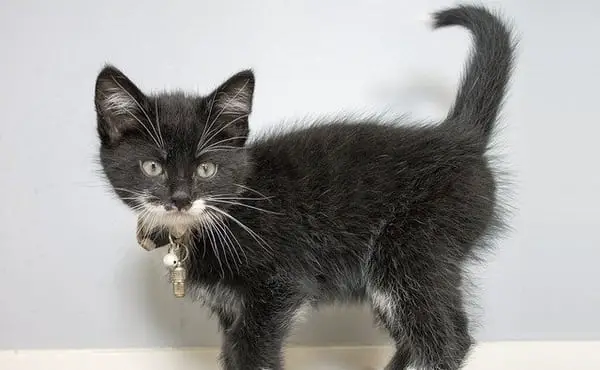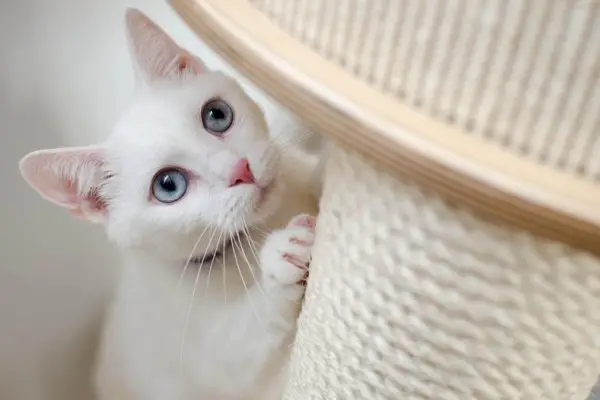Having a kitten is one of the most rewarding experiences anybody can have, but these little furry animals require a lot of care and attention because they’re still growing up, and our hectic schedules often require them to be alone. As a result, leaving kittens alone is a common problem among pet owners, and many wonder, “Can kittens be left alone during the day?”
In this article, we’ll look at the most important things to consider when leaving kittens alone, including their age, needs, and some tips for ensuring their safety and well-being.
Can kittens be left alone during the day?

You can go about your day while your kitten is in the house, but the number of hours you spend away from them depends on how old they are. This can be as much as four hours for felines between the ages of zero and four months, and anywhere from eight to sixteen hours for kittens between the ages of six months and one year.
Key Takeaways:
- How long you can leave your kitten for depends on how old it is.
- When you have to leave your pet behind, you should make sure that they have access to all of the essentials, such as food, water, milk, toys, and treats.
- If you have to be away from them for longer than the allotted time, you can ask close friends or family members to look after them, or you could even pay someone to watch for your pet.
How long can you leave your kittens?
Cats are known for their independent nature and don’t require as much attention as dogs. They prefer to spend time alone and are generally more self-sufficient.
However, even if they can handle this situation considerably better than dogs can, adult cats and kittens are still very different from one another. Kittens are the collective name given to young felines who have not yet reached their first year.
If you have a kitten between 0 and 4 months old, it’s important to limit the amount of time you leave them alone to less than 4 hours. However, once they reach the age of 4 to 6 months, you can gradually start increasing the time they can be left alone to 4 to 8 hours.
Kittens between 6 months and 1 year of age can safely stay indoors for a duration of 8 to 16 hours. As they grow older, cats 1 year and above can be left alone for a longer period, ranging from 24 to 48 hours.
Is it a good idea?

When you leave a young feline alone, it’s important to be attentive and make sure they have all the necessary provisions to thrive in your absence. This could include providing them with something to eat, drink, and a secure place to sleep. Very young kittens also require milk substitute formulae, especially if their mother isn’t there.
This is why it’s advisable to allow them to be left alone for a few hours, but it’s not recommended to leave them unattended for an extended period beyond what is typically recommended. You must always consider the responsibilities of being a pet owner and the potential consequences of leaving them unattended.
How to keep them entertained?
Providing entertainment for your small cats when you have to leave them at home due to work, school, or personal matters is important. It helps keep them engaged and happy during your time away. Separation anxiety is a common issue for kittens, just like it is for dogs.
However, this topic is often overlooked or not discussed in depth. You can keep them occupied while you’re away by providing toys and treats. You may also purchase some cat furniture, such as scratching posts or cat trees, and even put them in a room with a view or something they can gaze at that’ll keep them busy, such as a fish tank.
It might also be beneficial to them to have a designated space or “play zone” to help them relax and spend time while they’re gone.
How do you make your room kitten-proof?
It’s also essential to take into consideration the environment in which they’ll be staying while you are away, even if it’s only for a short period of time. You must ensure that all electric cords are kept away and stored in a safe place where cats can’t play with them. Additionally, you should remove any poisonous houseplants and fragile items from the room.
Since kittens are very little creatures, they can easily slip through small holes, so you should ensure that all of your doors and windows are completely shut and that any openings that could allow them to escape are properly sealed. Any food that could potentially be unsafe to them should also be hidden away so that they don’t consume it by accident.
Other options you can do
Leaving your kittens behind can be difficult if you’re a pet owner, particularly if you’re heading somewhere you won’t be able to bring them. So, here are some options to consider if you need to leave them for more than a few hours:
Leave them to your family and friends

If you have your family and friends nearby, you can opt to have them take care of your feline, ensuring they receive proper care. To guarantee that your family and friends can easily care for your kitten, provide them with all the necessary items. These include food, milk, water, treats, cat litter, and toys. By doing this, you can make caring for your young feline much more convenient for your loved ones.
Hire a pet sitter
If your friends and family aren’t available, another option you can consider is hiring a pet sitter. Investing a little extra money in this option ensures that your pet receives the best care possible in the comfort of your own home. This will help minimize any separation anxiety your kitten may experience, providing a more positive experience.
Final thoughts
Kittens, like any other young animal, require attention and care. While they can be left alone, you must consider their age because this will influence how long you can leave them. Long periods of time alone might cause anxiety and behavioral concerns, so it’s ideal to have someone check in on them.
Sources:
- “WILL MY CAT BE OK AT HOME ALONE WHILE I’M AT WORK?”, S. D. Dwilson, Comfort Zone, comfortzone.com

